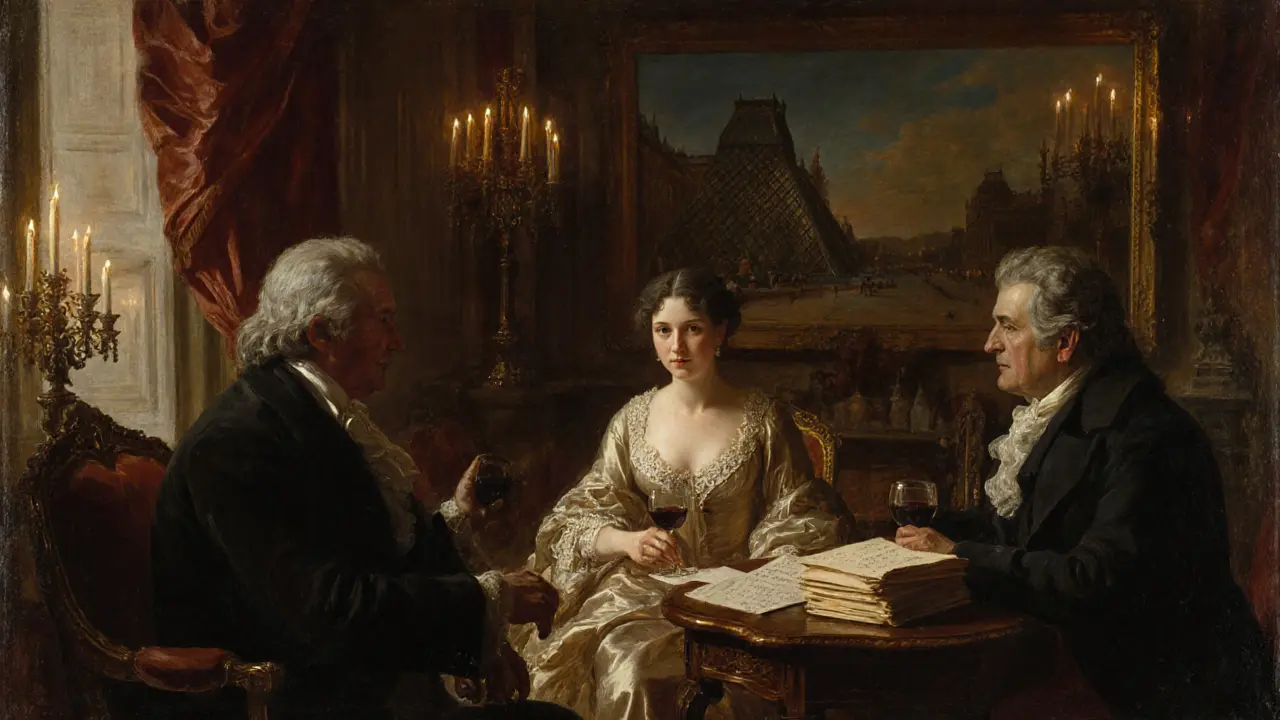Paris has long been a city of contrasts-elegant boulevards and hidden courtyards, haute couture and street poetry. Among its many layers, the presence of escorts has never been just about sex. It’s been about status, secrecy, survival, and sometimes, art. To understand escorts in Paris, you have to look past the stereotypes and into the city’s deeper social fabric.
From Courtesans to Modern Companions
In the 18th century, Paris was ruled by courtesans like Madame de Pompadour and Juliette Récamier. These women weren’t just lovers-they were political influencers, art patrons, and cultural tastemakers. They moved in salons where Voltaire and Rousseau debated ideas. Their relationships with wealthy men were negotiated like business deals, often secured through letters, dowries, and social capital. This wasn’t prostitution as we think of it today-it was a structured, almost institutionalized form of companionship.
Fast forward to the 20th century, and the role shifted. After World War II, many women turned to escorting not out of desperation, but because it offered freedom. Unlike factory work or domestic service, escorting allowed control over hours, clients, and income. By the 1970s, Parisian escorts were advertising in magazines like Paris Match and Elle, often presenting themselves as cultured companions who spoke multiple languages, knew the best restaurants, and could navigate the Louvre without a guidebook.
The Parisian Definition of Companionship
In France, the line between escort and companion is intentionally blurred. The French don’t use the word "prostitute" in casual conversation. Instead, they say escort, compagne, or amie. This isn’t just semantics-it reflects a cultural acceptance of transactional intimacy as long as it’s discreet. There’s no shame in hiring someone to accompany you to a gala, a theater premiere, or even a quiet dinner in Montmartre. What’s frowned upon is public disorder, not private arrangement.
Many modern escorts in Paris don’t advertise on street corners. They use encrypted apps, private websites, or word-of-mouth referrals. Their profiles often list hobbies: "loves jazz at Le Caveau de la Huchette," "can recommend the best crêpes in Saint-Germain," "fluent in Mandarin and Italian." Their value isn’t just physical-it’s emotional, intellectual, and social.
Legal Ambiguity and Social Tolerance
France doesn’t criminalize selling sex, but it does criminalize buying it. Since 2016, clients can be fined up to €1,500. Yet enforcement is uneven. In the 15th arrondissement, police turn a blind eye to discreet appointments. In the 18th, raids still happen. The law exists more as a moral statement than a practical tool.
Why does this double standard persist? Because Parisians understand that demand isn’t going away. Tourists come for romance, business travelers for connection, locals for companionship after divorce or loss. The city tolerates it because it’s part of the rhythm-like late-night boulangeries or cafés that stay open past midnight. It’s not celebrated, but it’s not hidden either.

Escorts in Popular Culture
Parisian escorts have shaped cinema, literature, and fashion. In Amélie, the protagonist imagines a life where she’s a mysterious woman who helps strangers find love. In La Vie en Rose, Édith Piaf’s rise is tied to the men who supported her-some paid, some not. The 2011 film The Girl from Paris follows a young woman who becomes an escort to fund her art school dreams.
Designers like Yves Saint Laurent and Jean Paul Gaultier drew inspiration from the elegance of Parisian escorts-the tailored coats, the gloves, the way they carried themselves in public without apology. Even today, high-end escort agencies in Paris work with stylists to ensure their clients look like they belong in a Cocteau painting.
Who Are the Escorts Today?
They’re not a monolith. Some are students supplementing tuition. Others are single mothers running side businesses. A surprising number are retired professionals-former diplomats, linguists, or dancers-who find companionship work more fulfilling than retirement. Many are expats from Eastern Europe, Latin America, or Southeast Asia, attracted by Paris’s relative openness and higher pay compared to other European cities.
One woman I spoke with, who asked to remain anonymous, told me: "I don’t sleep with everyone. I meet people who need to be heard. Sometimes, I’m the only one who listens. That’s worth more than money." She charges €200 an hour, works three days a week, and spends her free time volunteering at a women’s shelter.

Why It Matters
The cultural significance of escorts in Paris lies in what they reveal about French society: the value placed on discretion, the separation between public morality and private life, and the quiet dignity given to those who serve unglamorous human needs. In a world where loneliness is rising, Paris offers a space where connection-even paid-can be treated with grace.
It’s not about the act. It’s about the context. In Paris, an escort can be a translator, a confidant, a date for your cousin’s wedding, or someone who remembers how you take your coffee. That’s not exploitation-it’s adaptation. And it’s been part of the city’s soul for centuries.
Myths vs. Reality
Let’s clear up a few myths:
- Myth: All escorts are trafficked. Reality: Most operate independently. Organizations like Association pour le Droit des Travailleuses du Sexe help women with legal rights, health checks, and housing.
- Myth: They’re all young and beautiful. Reality: Clients often request women over 40 for their emotional maturity. There’s a growing market for "mature companions."
- Myth: It’s all about sex. Reality: Many clients never touch their escort. They pay for conversation, presence, and the illusion of being wanted.
What’s consistent across all profiles? A deep understanding of boundaries. Parisian escorts know how to say no. They know when to leave. They know how to disappear without a trace. That’s not a sign of weakness-it’s a skill.
What You Won’t See in the Brochures
You won’t see the woman who cries after a client dies of a heart attack during dinner. You won’t see the one who tutors a child in English every Tuesday. You won’t see the notebook where she writes down the stories people tell her-stories she’ll never share, but will carry forever.
Paris doesn’t glorify escorts. But it doesn’t erase them either. That quiet coexistence? That’s the real cultural significance.
Are escorts legal in Paris?
Selling sexual services is not illegal in France, but buying them is. Since 2016, clients can be fined up to €1,500. Escorts themselves are not arrested, but operating brothels, pimping, or advertising publicly is illegal. Most work independently and discreetly, using private networks or encrypted apps to connect with clients.
How much do escorts in Paris typically charge?
Rates vary widely. Entry-level escorts may charge €100-€150 per hour, while experienced or high-profile companions can charge €300-€800. Those who offer additional services like translation, cultural tours, or event companionship often charge more. Some work on a daily rate, especially for longer-term arrangements or international clients.
Do escorts in Paris have other jobs?
Many do. A significant number are students, artists, or expats working multiple jobs. Some are former professionals-teachers, translators, or nurses-who turned to escorting for flexibility. Others use it as a stepping stone to start their own businesses. The income allows them to pursue education, travel, or creative projects they couldn’t otherwise afford.
Is it safe to hire an escort in Paris?
Safety depends on how you find them. Reputable agencies or personal networks with reviews and verification are safer than random ads or street encounters. Most professional escorts screen clients carefully, use secure communication, and meet in public places first. Many carry personal alarms and share their location with a trusted friend. The biggest risk comes from unregulated sources, not the industry itself.
Why do people hire escorts in Paris?
People hire escorts for many reasons: loneliness, social anxiety, lack of time to date, or simply the desire for elegant companionship without emotional entanglement. Tourists hire them to feel like locals. Business travelers need someone to accompany them to dinners. Some clients are widowed or divorced and miss having someone to talk to. It’s rarely just about sex-it’s about connection, comfort, and being seen.




